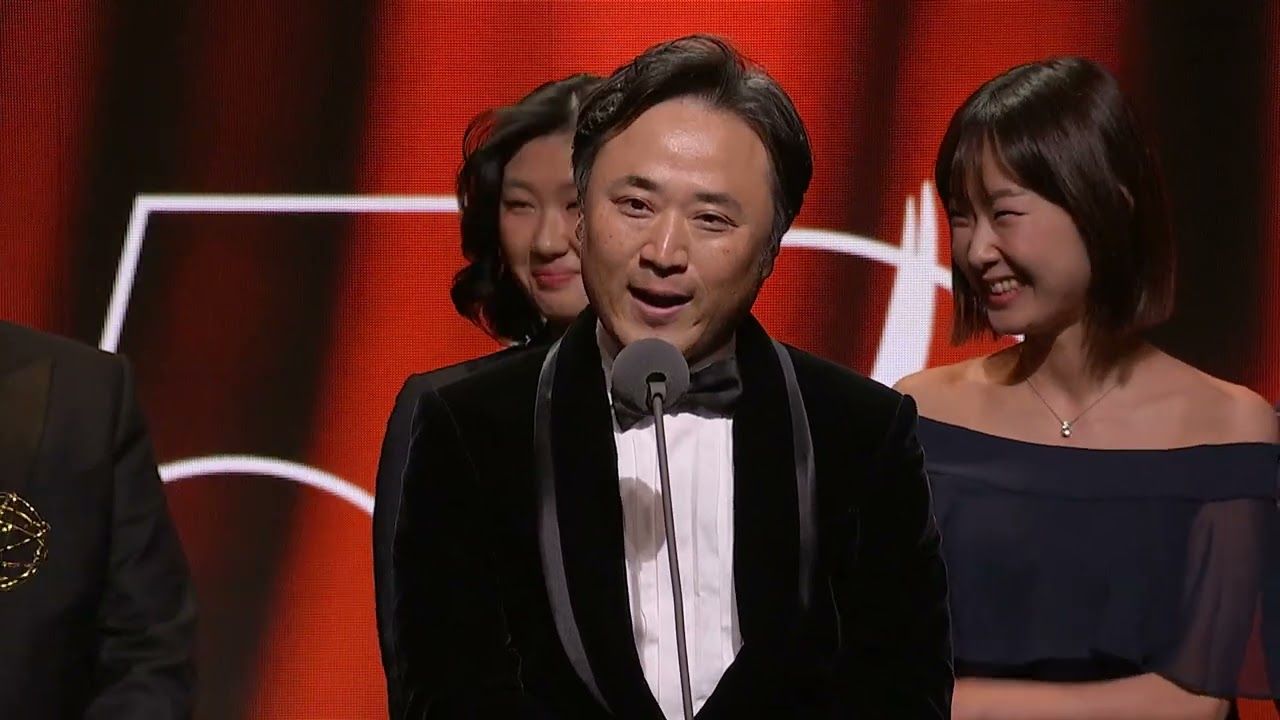[Essay] The significance of K-drama's wins at international awards---①
K-dramas have expanded globally, evidenced by successive international awards. "Yeonmo" winning the International Emmy signifies a shift in cultural perception. While celebrating, it's vital to consider the broader implications for K-drama's sustainability and future growth ....
Author | Kenny Kihyung, BAE (Senior Producer, KBS International Broadcasting Corporation)
2023.JAN
It's easy to recognize the expanded status and boundaries of international award-winning K-dramas. On a global scale, the coordinates of K-drama have clearly changed. K-dramas have expanded the geographical boundaries of global cultural reception from Asia to the rest of the world. K-drama's status has been elevated by being recognized as having a global reach that goes beyond cultural exchange. In addition to geographical expansion, K-dramas have also strengthened their cosmopolitan orientation by expanding their narrative and broadening their taste groups. Through these changes, we can see that global pop culture is showing a new media landscape of hybridization. I hope that the successive international awards will reaffirm the hybridity, transnationality, and globality of K-dramas and advance the Hallyu discourse from an industrial and cultural context to an audience-centered one.
1. International award wins in succession
It feels good to receive an award. In November 2022, "Yeonmo (연모, English title is The King's Affection)" which aired on KBS, won the 50th International Emmy Award. It's a great feeling to know that Korean drama has been praised and recognized internationally. However, nowadays, when Korean contents becomes a big hit on the world stage and wins international awards, it's no longer a cause for celebration.
We've become accustomed to the continued success of Korean pop culture, with BTS topping the Billboard charts and winning back-to-back American Music Awards, movei <Parasite> winning the Palme d'Or at the Cannes Film Festival and winning Best Picture and Best Director at the Academy Awards, and <The Squid Game> winning a Primetime Emmy last year. However, the fact that <Yeonmo>, a drama, not a K-pop song or movie, has won a major international award on the world stage is a very surprising and significant event, and one with profound implications. As you may know, K-pop is a genre that relies on lyrics that resonate, but also on non-verbal elements such as pitches and spectacular visuals, and movies are a media that can be enjoyed in the immersive structure of a specific space, traditionally the theater.
Therefore, dramas watched on TV in the familiar space of home are the content that provides daily enjoyment, and the space for foreign content that requires a cultural discount to watch TV dramas seemed to be narrow. However, K-dramas made in Korean have suddenly become the world's favorite dramas, and Korea has been treated as a creative country that produces interesting stories and spreads them around the world.
The transnational love and enjoyment of K-dramas around the world, as evidenced by international awards, is something to be proud of. However, a few good grades in school doesn't guarantee a great life. In this article, I would like to reflect on the cultural and industrial implications of K-dramas winning international awards without unconditionally praising or disparaging them. This is for the sustainable future of K-dramas.


2. K-Dramas, Now in the Major Leagues?
K-dramas have been gaining popularity in Japan, China, Southeast Asia, and the Middle East for more than 20 years, but they have not gained much traction in North America and Europe, two of the major players in the global video industry. Considering that Asia, including Korea, has long been a one-way importer of Western cultural products, it is noteworthy that K-dramas have recently gained popularity and enthusiasm in markets around the world, including the United States.
North America and Europe have become the "majors" in the video market because they not only produce and distribute more content than any other region in the world, but also dominate other regions in terms of content purchasing power. Therefore, winning a "major" international award is a cultural achievement that shows that K-dramas are successful in the global market, not just in parts of Asia. This is significant because it means that the preference for K-dramas is no longer a cultural phenomenon that occurs only in neighboring countries based on cultural similarities and geographical proximity.
Of course, this doesn't mean that the award-winning works are the best works. However, it is important to note that it symbolizes that the excellence and completeness of the work has been recognized by the market and has won the taste and preference of people around the world. This is not the first time that a Korean drama has won an international award. Our dramas have been winning international awards since 1996, when Kim Hong-jong's Days on the Road, aired on KBS, won the Grand Prize in the drama category at the Italian Awards.
However, the significance and impact of "Yeonmo's" International Emmy win is not the same as before. It shows the geographical expansion of K-drama's acceptance and the changing topography, and it also reveals the industrial significance of the work beyond its artistry and quality. This is the first time a K-drama has won an International Emmy. In 2010, MBC's Human Documentary Love, Full Bread Mom won in the documentary category, and in 2013, MBC's Hello? Orchestra won in the Arts Programming category in 2013.
Globalized K-drama
At this point, you may be wondering why <The Squid Game> at the Primetime Emmy Awards and Yeonmo at the International Emmy Awards are both Korean dramas, but why were they nominated and won in different categories? <The Squid Game> is naturally considered a Korean production because the director and lead actors are Korean, and it is also a Korean production from a narrative point of view given the setting of the story, but from an industrial point of view, it is an American content product produced with American money, and the content IP is 100% owned by Netflix.
It was Netflix's decision to submit it to the Primetime category because they own all the rights. At first glance, one might think that the International Emmy Awards are more prestigious than the Primetime, which are limited to domestic U.S. programming, but given the size of the U.S. video industry and its dominance in the global market, being recognized in the U.S. market means being considered the best in the global market. Netflix went for the primetime awards, where the ticket power of winning awards is greater, and "The Squid Game," a Korean story with global resonance and grit, proudly won best director (Hwang Dong-hyuk) and best actor (Lee Jung-jae) at the Primetime Emmys. Of course, ticket power here refers to marketability through the influx of subscribers and lock-in effect, not theatrical box office, as the platform that released "The Squid Game" was OTT.
Meanwhile, Yeonmo became the first K-historical drama to debut as a non-English series in the Netflix Global Top 10, at number four. The show was nominated and won in the Telenovela category at the International Emmy Awards by KBS, Ark Media (the production company), Monster Union (KBS's drama subsidiary), and Netflix, which share the rights to the show. Although Yeonmo is a historical drama with a Korean epic setting, it was recognized in the telenovela category because it is part of a series of traditional dramas about the love between a man and a woman, along with exotic cultural elements and landscapes that are foreign to Americans.
Telenovelas, which translates to "television novels," refer to soap operas that are broadcast primarily in Latin America, but the International Emmy Awards prioritize genre over geography in awarding telenovelas. This demonstrates that international award categories or genre divisions can be arbitrarily altered by the industrial needs of large global corporations. While the nature of OTT does not allow for prime time, the fact that awards for best TV programs are decided without regard to OTT or legacy media is another example of industry interests.
In any society, there is a mainstream or insider group that sets the agenda, and then there is a segment of the population that passively follows that agenda. On the international stage, the interests of global media corporations are also at play. Therefore, a strategic analysis and response to the industrial interests and hegemony of global pop culture is necessary to ensure the future performance of Hallyu content, including K-dramas, in the global market.
In addition to the award for "Yeonmo," CJ ENM Vice President Lee mi-kyung was honored for her role in the global expansion of the Korean Wave and the development of the cultural industry. She is the second Korean to receive the award after KBS President Kim In-gyu in 2012. While the achievements and contributions of the winners are of course important, it should not be overlooked that these achievements are the result of the international cooperation strategies and activities of the content companies that represented Korea then and now. It is encouraging to see that Korea's profile on the international awards stage is gradually increasing.
This is also evident in the composition of the jury. As an expert and researcher in the field, I have been a member of the International Emmy Awards jury for the past five years, and I can confirm that the number of Korean judges has continued to increase in the three stages of judging: preliminary, semi-final and final.
The Academy members who decide on the Oscars have also been invited to participate, with an average of 11 Koreans invited since 2018. The Academy has become so globalized that 29% of the new members are people of colors, and their nationalities now represent 59 countries, and it's no secret that movie studios lobby for them. Winning major international awards translates into ticket power, which translates into sweet industry profits.
The Academy allows studios to run campaigns and give gifts to the judges, and Netflix is known to have spent over $70 million on its last Academy campaign. So while the achievements of The Squid Game and Yeonmo are essentially international recognition of the films' excellence, it's important to note that both of these awards were won by Netflix. While the achievements of K-dramas are significant because they affirm the global potential of local content, it's important to look at the context in which Netflix's industrial interests and influence operated at the same time.
There is a difference between entering a major market and becoming a major player. This is why South Korea needs to take the next step to become a rule-maker rather than a rule-taker on the international stage.
3. Now to the global OTTs
Initially, K-dramas were produced by public broadcasters in Korea and exported to network broadcasters in importing countries through the traditional distribution network. The first generation of Hallyu dramas such as , , and that were exported overseas in this way received an unexpectedly enthusiastic response in neighboring countries such as China and Japan.
This enthusiasm then spread to Taiwan, Hong Kong, Southeast Asia, and the Middle East. As a result, South Korea's exports of broadcast programs began to outpace imports, and by this time Hallyu discourse was high on the government's policy agenda. Traditional overseas content distribution continued with shows such as Lovers in Paris, Stairway to Heaven, and Full House, and K-dramas gradually developed loyal international fan bases.
In 2014, K-dramas that had previously been distributed through foreign broadcasters' platforms gained a new distribution network in China: OTT platforms instead of the Central Broadcasting Corporation (CCTV) or provincial broadcasters. OTT platforms have become the main distribution channel for K-dramas in China, with "You from the Stars" garnering over 2.5 billion views after being exported to Aichi in 2014, and "Descendants of the Sun" surpassing 2.6 billion views in 2016.
Although OTT platforms were initially chosen to circumvent restrictions from Chinese authorities, their deep pockets and distribution power have changed the production practices of K-dramas. Previously, pre-production was considered virtually impossible in the K-drama industry, where "temporary scripts" (also known as "day-scripts" 쪽대본) were the norm. Although day-scripts were basically created due to the poor production conditions of domestic dramas, it was a practice that was hard for domestic drama producers to shake off because it allowed them to quickly reflect audience reactions to their works, and they could continue to expect sponsorship revenue through PPL even during production.
However, the demands of OTT platforms have changed the practice of day-of production into a pre-production method. It was also decided that Descendants of the Sun would be aired simultaneously in Korea and China to overcome the illegal distribution of content that pre-production could cause. This was a landmark event that eliminated the time difference in overseas distribution of Korean content, and since then K-dramas have continued their ecological evolution toward platform optimization. However, the Hanhan Decre e forced K-dramas to shift their export markets away from China to Southeast Asia and other parts of the world.
In fact, Asia has been the only region where K-dramas have proven to have the staying power to compensate for cultural discounts. In particular, exporting K-dramas to the U.S. market, which is closed to non-English content, was an unwelcome prospect. It was Netflix, a global OTT platform, that dramatically changed the consumption market for K-dramas. K-dramas on Netflix have attracted more than 200 million viewers in more than 190 countries around the world. In particular, the spread of non-face-to-face culture due to the Corona pandemic has led to a surge in the consumption of dramas on OTT platforms based on online streaming services, and the quality and completeness of K-dramas have allowed American audiences to overcome the one-inch barrier and join the K-drama experience.
OTT platforms can be categorized into two ways of receiving K-content. First, there is the licensing type, which acquires licenses for programs produced in Korea and broadcast in Korea and includes them in its OTT platform service list. For example, "Penthouse" produced by Green Snake and broadcast on Channel A and "Hotel Del Luna" produced by Studio Dragon and broadcast on tvN were distributed to Viu, an OTT platform in Southeast Asia.
In addition, Astory's "The Strange Lawyer Woo Young-woo," which was produced by Astory and aired on the cable channel ENA and became a hit with a 17.5% audience share (Nielsen Korea nationwide), was licensed to Netflix for worldwide distribution. On the other hand, there is the original type, which is produced with the planning and capital of global OTT platforms. Examples of this category include , and . These are large-scale programs that are relatively large in scale compared to licensed programs and require large amounts of capital. These are programs that could only be produced because of the investment in production costs by global OTT platforms.
Serial Success and Wary
Whether licensed or original, global OTT platforms are competing to provide low-cost K-dramas. The competitiveness of K-dramas is recognized by the fact that dozens of K-dramas are in the top 100 of Netflix's global ranking in 2022. Netflix has released "Our School Now," "Boy Referee," "Annarasumanara," "House of Paper: The Common Economic Zone," "Bride in Black," "Model Family," "Suriname," "Glitch," and "Something Body". Disney Plus also offers You and Me, Police Academy, Grid, Soundtrack #1, The Kiss, The Sixth Sense, I'll Begin My Defense, Detective Story, Third Person Revenge and more. Disney Plus is positive for the K-drama ecosystem in that it prevents Netflix from overcrowding and maintains competition.
Domestic OTT platforms such as Wave(웨이브) and Tving(티빙) also contribute significantly to the ongoing production of K-dramas, but overseas distribution depends on the strong distribution power of global OTTs. Without the funding and distribution power of global OTTs armed with digital technology, neither original nor licensed dramas would have survived. <Cha Cha Cha> and <Gentleman and Lady>, which were only available on Netflix after they aired, received overseas reactions that exceeded their domestic reactions, demonstrating the power of global OTT platforms.
How could or have been released on Netflix if they hadn't been released on Netflix, and how could they have continued to be talked about and exploded in markets around the world? As the K-drama ecosystem is bound to revolve around global OTT platforms in the future, many people are concerned about the structural strengthening of global OTT's dominance over K-dramas.
While it is fortunate that the Korean limitation order 限韓令(China's ban on Korean culture) has revitalized the K-drama ecosystem and secured global distribution channels away from China, the dependence on global OTTs is something to be wary of. Nevertheless, as Professor Lee Sung-min points out, global OTTs have given Korean drama producers the opportunity to create works for taste-driven audiences that were previously not recognized as a meaningful market, and by expanding the repertoire horizons of Korean dramas, K-dramas can become truly global.
If the Hallyu phenomenon of "Winter Sonata" was an "unplanned success" achieved through traditional content distribution, the revolutionary achievements of K-dramas in recent years can be seen as a "planned success" thanks to sophisticated global strategies and investments by OTT platforms. The game changer for K-dramas is global OTT platforms. (Continued next)

![[분석] OTT 시대의 막장, 왜 반복되는가 ― 감정의 알고리즘과 욕망이 설계되는 방식](https://cdn.media.bluedot.so/bluedot.kwave/2025/12/p2hxlj_202512201852.jpg)
![[연구] 넷플릭스 한국 진출 10년을 돌아보다: ‘약한 고리 깨기’에서 ‘원숭이 꽃신’까지](https://cdn.media.bluedot.so/bluedot.kwave/2025/12/nijw81_202512140459.jpg)